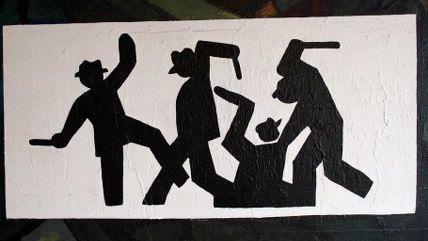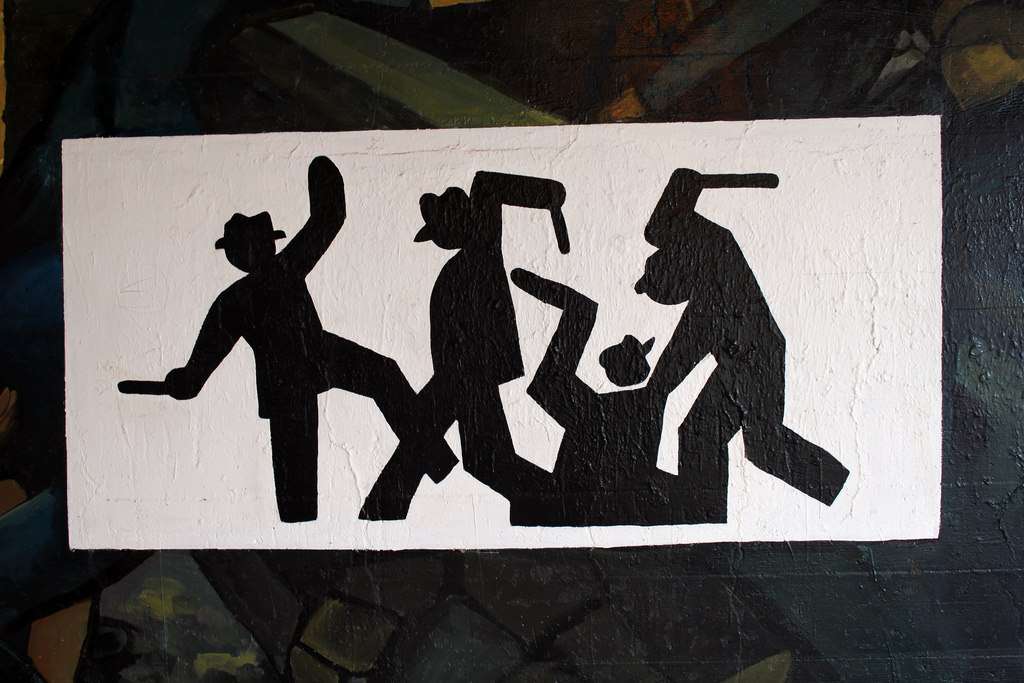Cops as Criminals
Police regularly violate citizens' rights and get away with it.


Late one night, during high school, I was driving home when several police cars zoomed by. Curious about what was going on, I followed them down a residential street, where they pulled up to a house.
I drove by and saw some officers walking up the sidewalk, but couldn't tell what they might be after. So I pulled into a driveway, turned around and drove back. My curiosity still unsatisfied, I then looped around the block to make one more pass.
Wrong decision. One of the cops pulled his car up behind me, turned on his lights, jumped out, and ordered me to get out of my car. When I did, I was surrounded by men in uniform, one of whom screamed profane threats and invective in my face. I quietly endured the abuse, and when they finally let me go, I considered myself lucky not to have been beaten or arrested.
The police would have had trouble finding a reason to arrest me, since driving on a public street is not illegal. Nor was I interfering with what they were doing. But my unassailable legal position was not foremost in my mind at that moment.
What was foremost is that they had guns, batons and badges and could do pretty much whatever they chose without fear of punishment. Had I argued, I have no doubt the encounter would have ended badly.
I was breaking no law. The cop who threatened me, however, was guilty of assault—which Texas says occurs when someone "intentionally or knowingly threatens another with imminent bodily injury." Since he had a gun on his hip, he may have been guilty of aggravated assault. But it didn't matter. He and his colleagues acted as though they were in the right, and self-preservation dictated that I pretend they were.
The lesson imprinted by the experience was one I already understood, even if I had never thought much about it: Some of the scariest people are the ones who are supposed to keep us safe.
I've had only a few unwanted contacts with police since, and I've been very careful not to antagonize them. Even when I was ticketed for failure to come to a complete stop at a stop sign—which I was quite sure I had—I didn't argue.
When I went to traffic school for that citation, the instructor confirmed my instincts. "When you're stopped, I'd strongly advise you not to talk back," he said with a smug grin. "If you do, any cop can find five or 10 things to write you up for."
Sandra Bland probably understood the nature of this reality. She cooperated with the Texas state trooper who pulled her over for her trivial failure to signal a lane change on a mostly empty street.
But when she failed to grovel sufficiently, he demanded an explanation—and didn't like the one he got. Soon he was angrily yanking her out of the car, taking her to the ground and handcuffing her. Why did the confrontation escalate out of control? Not because Bland violated the laws of Texas, but because the cop felt unconstrained by them.
In many instances, police can trample on citizens' rights with impunity. Stopping and frisking without legal justification was the practice in New York City until 2013, when a federal judge intervened. Some Chicago cops tortured suspects, and for years they got away with it.
The only reason police brutality has come to light via video cameras is that some officers are so used to committing it that they never dream of being held to account.
It's no secret that they can and do get away with lying. A prosecutor I know once marveled at how often motorists leave illegal drugs on the front seat, where they can be easily spotted by police during stops. His implication was that the cops conduct illegal searches and afterward invent stories to make them appear legal.
Video cameras expose some of this behavior, but they're not necessarily enough to change it. The officer who stopped Bland knew a dashboard camera was recording him—yet he proceeded to flip out.
He acted on a view that too many cops have and that civilians learn at their peril: The police are obligated to enforce the law, not obey the law.
© Copyright 2015 by Creators Syndicate Inc.


Show Comments (127)